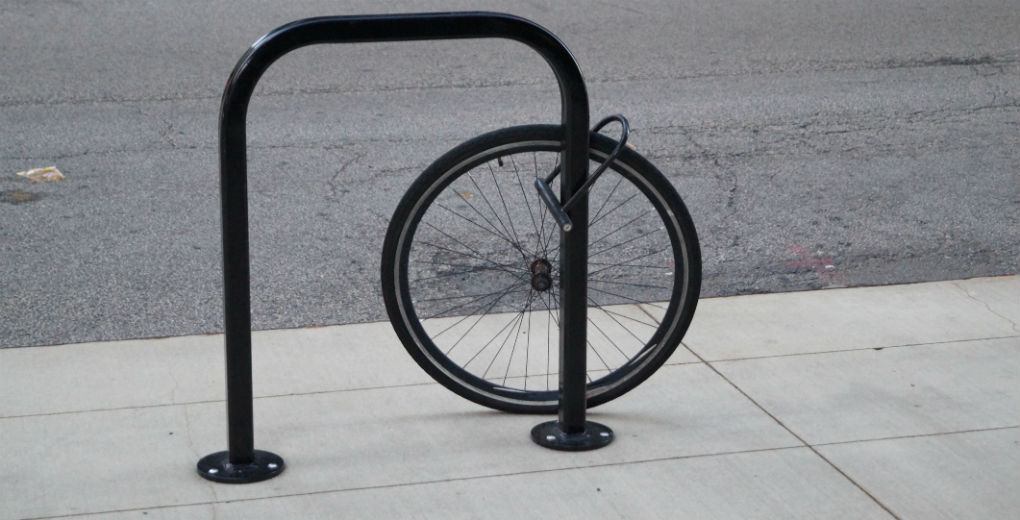
4 steps to take when your bike’s been stolen
4 steps to take when your bike’s been stolen
Bike thefts have been on a slow decline since 2012. But it’s a crime that still causes thousands of cyclists heartache every year.
According to the Office for National Statistics, two in 100 bicycle-owning households have had a bike stolen in the last 12 months.
The fact that this is an improvement on the six in 10 households’ figure of 1995 is little consolation for a portion of the 274,000 victims who may have to come to terms with the fact that they may not get their bike back, and depending on their insurance policy, may not even be covered for it.
If you have had your bike stolen, either from your shed or from a public place, you should resign yourself to a life without your wheels just yet, as there are ways you can increase the chances of its safe return.
- Tell the police
Of the 274,000 people who had their bikes stolen in 2017 according the Crime Survey for England and Wales, only 102,581 were reported to the police. Figures from a research commission by The Bike Register show that half of those who reported a stolen bike to the police felt it wasn’t investigated.
But BikeRegister’s police liaison officer, Nick Roach explained that local forces struggle through lack of information, “I speak to police officers all over the UK who are frustrated that they can’t effectively investigate cycle theft as many victims are often unable to give them any information other than perhaps the make and colour.”
PC Lee Honey, of the Metropolitan Police, explained the importance of reporting,
“Reporting thefts even if you believe you will never see your bike again is very important. Unless all crimes are reported, we will never have the correct crime figures and therefore, bike crime will not be seen as big of a problem as it actually is. Crimes can only be dealt with and measured if they are actually reported in the first place.”
The police should be the first phone call you make when you know you have had your bike stolen. Call the non-emergency 101 number and give as much information as possible, including details of the bike, where it was taken from, and whether it was marked. If your bike is marked they will be able to check a dedicated database, and provide you with a crime reference number to take to your insurance company.
- Call your insurer
The value of bikes can be as such that they’re either covered as a separate item on your home insurance or they need dedicated cover. In both cases, there is still the chance that your claim will be turned down.
You should check the wording on your home insurance policy to see what’s covered in your shed, if anything, and whether bike insurance is valid only when using a specific type of lock or method for securing it in a public place.
Even if you don’t think you have a case for a claim, call your insurer to check. If you believe they’re wrong in turning down a claim, you can speak to your broker, if you have one, or contact the financial ombudsman.
- Advertise locally, on and offline
Ask shops to put up posters of your bike including a picture, and spread the word on social media. The survey commissioned by BikeRegister showed that out of the 10% of people who managed to retrieve their bike, 29% of them of them used social media to do so.
- List on specialist websites
There are several websites that offer dedicated support in reuniting you with your bike. BikeRegister is a database used by cyclists and the police to search for and recover stolen bikes. They can also mark your bike and offer a security kit with a warning label which can act as a deterrent.
Stolen Bikes is another database, which puts alerts out through their social media to publicise the theft of your bike. Through its sister site, Find That Bike, you can also sign up to alerts of bikes matching your description which are up for sale on eBay or Gumtree.
And what not to do
PC Honey advises to never put yourself at risk for the sake of your bike,
“If a victim does find their bike for sale, do not engage with the seller – report it immediately to the local police. Many bike thieves operate in gangs and you are often likely to be putting your own safety at risk by trying to deal with the situation yourself.”
“The police will be able to give you the best advice on how the crime should be taken forward at this point. At the end of the day, no matter how attached you are to your bike, it is a piece of property which can be replaced. You, however, cannot so do not place yourself in danger.”